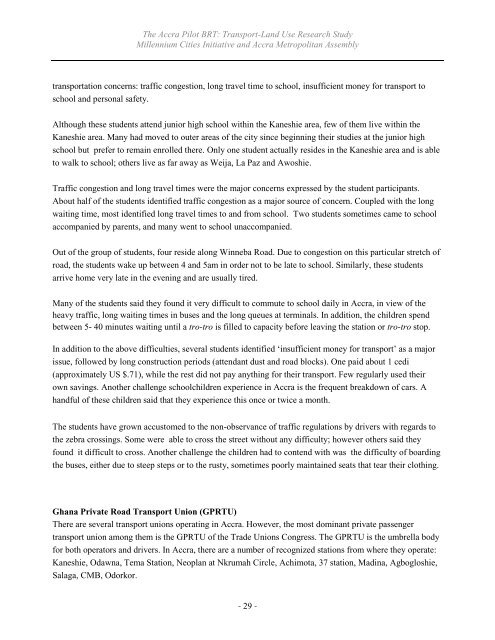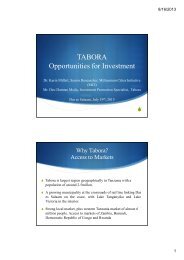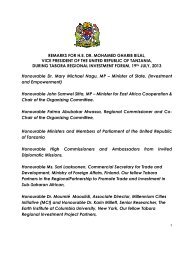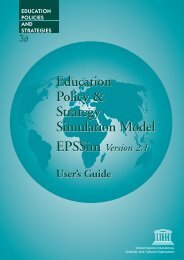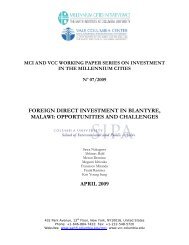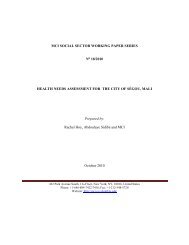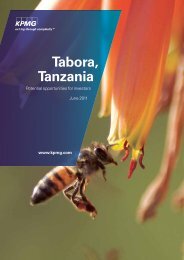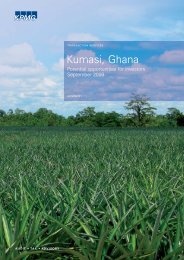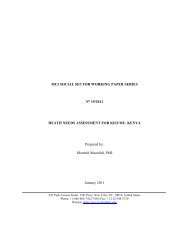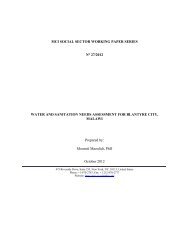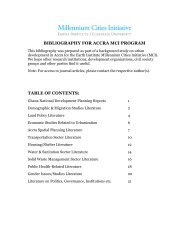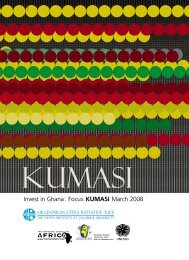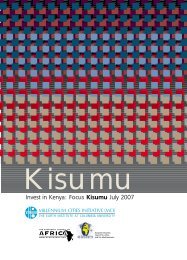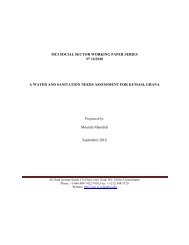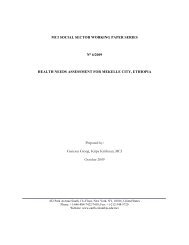Transport-Land Use Research Study - Millennium Cities Initiative ...
Transport-Land Use Research Study - Millennium Cities Initiative ...
Transport-Land Use Research Study - Millennium Cities Initiative ...
You also want an ePaper? Increase the reach of your titles
YUMPU automatically turns print PDFs into web optimized ePapers that Google loves.
The Accra Pilot BRT: <strong>Transport</strong>-<strong>Land</strong> <strong>Use</strong> <strong>Research</strong> <strong>Study</strong><br />
<strong>Millennium</strong> <strong>Cities</strong> <strong>Initiative</strong> and Accra Metropolitan Assembly<br />
transportation concerns: traffic congestion, long travel time to school, insufficient money for transport to<br />
school and personal safety.<br />
Although these students attend junior high school within the Kaneshie area, few of them live within the<br />
Kaneshie area. Many had moved to outer areas of the city since beginning their studies at the junior high<br />
school but prefer to remain enrolled there. Only one student actually resides in the Kaneshie area and is able<br />
to walk to school; others live as far away as Weija, La Paz and Awoshie.<br />
Traffic congestion and long travel times were the major concerns expressed by the student participants.<br />
About half of the students identified traffic congestion as a major source of concern. Coupled with the long<br />
waiting time, most identified long travel times to and from school. Two students sometimes came to school<br />
accompanied by parents, and many went to school unaccompanied.<br />
Out of the group of students, four reside along Winneba Road. Due to congestion on this particular stretch of<br />
road, the students wake up between 4 and 5am in order not to be late to school. Similarly, these students<br />
arrive home very late in the evening and are usually tired.<br />
Many of the students said they found it very difficult to commute to school daily in Accra, in view of the<br />
heavy traffic, long waiting times in buses and the long queues at terminals. In addition, the children spend<br />
between 5- 40 minutes waiting until a tro-tro is filled to capacity before leaving the station or tro-tro stop.<br />
In addition to the above difficulties, several students identified „insufficient money for transport‟ as a major<br />
issue, followed by long construction periods (attendant dust and road blocks). One paid about 1 cedi<br />
(approximately US $.71), while the rest did not pay anything for their transport. Few regularly used their<br />
own savings. Another challenge schoolchildren experience in Accra is the frequent breakdown of cars. A<br />
handful of these children said that they experience this once or twice a month.<br />
The students have grown accustomed to the non-observance of traffic regulations by drivers with regards to<br />
the zebra crossings. Some were able to cross the street without any difficulty; however others said they<br />
found it difficult to cross. Another challenge the children had to contend with was the difficulty of boarding<br />
the buses, either due to steep steps or to the rusty, sometimes poorly maintained seats that tear their clothing.<br />
Ghana Private Road <strong>Transport</strong> Union (GPRTU)<br />
There are several transport unions operating in Accra. However, the most dominant private passenger<br />
transport union among them is the GPRTU of the Trade Unions Congress. The GPRTU is the umbrella body<br />
for both operators and drivers. In Accra, there are a number of recognized stations from where they operate:<br />
Kaneshie, Odawna, Tema Station, Neoplan at Nkrumah Circle, Achimota, 37 station, Madina, Agbogloshie,<br />
Salaga, CMB, Odorkor.<br />
- 29 -


